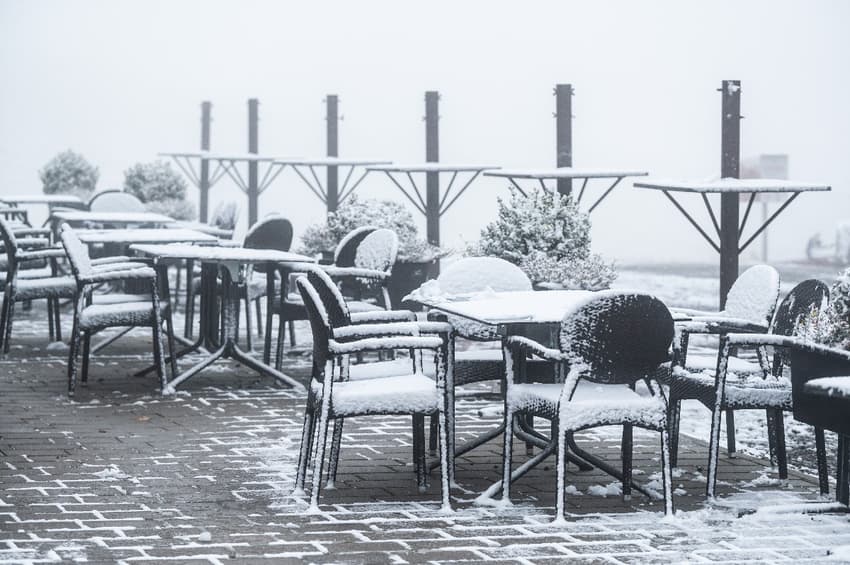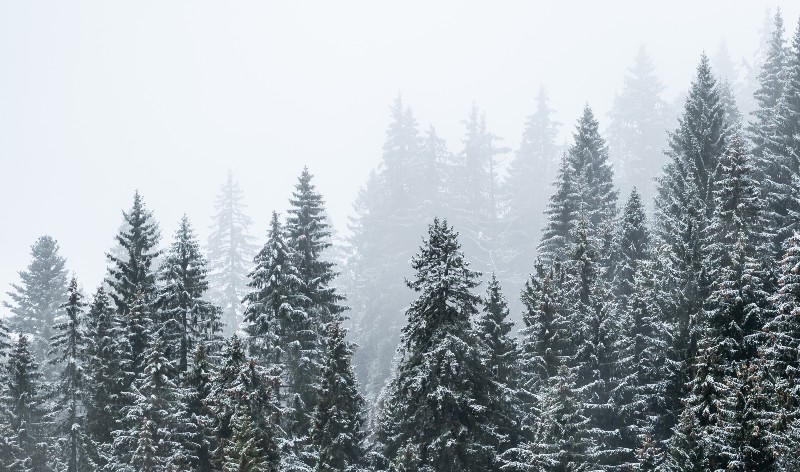Living in Germany: Making the most of winter, everyday frustrations and speaking 'Alsatian'

In our weekly news and culture roundup, we look at how to embrace Germany's colder months, typical German customer service and one of the country's most unique dialects.
Living in Germany is our weekly look at some of the news and talking points in Germany that you might not have heard about. Members can receive it directly to their inbox on Saturday.
Embracing the colder months in Germany
With the clocks going back an hour and the nights getting darker, we are getting into the colder months. Anyone who has lived in Germany for a while knows that this can be a difficult time of year to get through - both physically and for the soul. And that’s not even factoring in dealing with horrific world events unfolding, where there seems to be more bad news every day.
So it’s time to look out your warm clothing and get ready for the winter in Germany. In fact you may even enjoy parts of it, as Sarah Magill wrote for The Local Germany this week.
For instance, winter is a great time to get to a spa. When the temperatures dip, there really is nothing more comforting than getting into a sweaty sauna, hot tub or steam room. It’s something that Germany does really well. We’d recommend checking out Friedrichsbad in the bathing capital Baden-Baden. These thermal baths apparently offer a Roman-Irish bath with a 17-step ritual that sounds both lush and educational!
No-one does Christmas markets like the Germans so get yourself along to one when they open and sip on an obligatory Glühwein (mulled wine). But you don’t have to limit yourself to these festive occasions: winter markets are in full swing in Germany throughout the colder months. A favourite of ours is the craft market in the Berlin district of Wedding that is taking place on Sunday November 5th.
Lastly, get outside in those daylight hours whenever you can. Go for an afternoon stroll in the park, sit on a bench (in a warm coat and scarf) and watch the world go by, or try a winter hike in the Harz mountains. Getting home and cosying up with your favourite film or TV programme (whether it’s German or not) and a Heiße Schokolade will be all the more lovely.
Tweet of the week
Perhaps you can relate to this experience of German customer service. As one social media user commented, perhaps the German love language is saying “nein".
Every year for the past nine years I have ordered a turkey for thanksgiving from the same Fleischerei and every year they spend thirty minutes telling me that this simply isn’t possible.
— Ryan Ruby (@_ryanruby_) November 1, 2023
Where is this?

Photo: DPA/Silas Stein
It’s still the beginning of November - but winter is well on its way, as this scene from the Black Forest shows. The first snowflakes fell on Feldberg, Baden-Württenberg, this week. According to the German Weather Service (DWD), temperatures in the high altitudes of the Black Forest fell to -2C.
But the snow isn’t expected to remain on the ground for a long time just yet, said a DWD meteorologist - because the ground is not yet cold enough. Snowfall in mountainous areas of Germany is nothing unusual at this time of year, said the weather spokesman.
Did you know?
There are believed to be as many as 250 dialects of German spoken. But did you know about the German dialect spoken in eastern France? Alsace is a border region on the Rhine that France and Germany have fought over three times since 1870. Although it is very much a part of France now, it has a strong local identity and German influence - and its very own brand of German.
Our sister site The Local France reported: “French media TF1 estimated that as of 2019, at least 600,000 people in France spoke Alsatian, many of whom were over the age of 60.” However, this may change as some state schools in the area are teaching it for the first time to youngsters.
So how do you know if you’re around people who speak this dialect? Although there is lots of variety in how this dialect is spoken even within Alsace, expect to hear something like “Guede morje!” instead of “Guten Morgen!”
Comments
See Also
Living in Germany is our weekly look at some of the news and talking points in Germany that you might not have heard about. Members can receive it directly to their inbox on Saturday.
Embracing the colder months in Germany
With the clocks going back an hour and the nights getting darker, we are getting into the colder months. Anyone who has lived in Germany for a while knows that this can be a difficult time of year to get through - both physically and for the soul. And that’s not even factoring in dealing with horrific world events unfolding, where there seems to be more bad news every day.
So it’s time to look out your warm clothing and get ready for the winter in Germany. In fact you may even enjoy parts of it, as Sarah Magill wrote for The Local Germany this week.
For instance, winter is a great time to get to a spa. When the temperatures dip, there really is nothing more comforting than getting into a sweaty sauna, hot tub or steam room. It’s something that Germany does really well. We’d recommend checking out Friedrichsbad in the bathing capital Baden-Baden. These thermal baths apparently offer a Roman-Irish bath with a 17-step ritual that sounds both lush and educational!
No-one does Christmas markets like the Germans so get yourself along to one when they open and sip on an obligatory Glühwein (mulled wine). But you don’t have to limit yourself to these festive occasions: winter markets are in full swing in Germany throughout the colder months. A favourite of ours is the craft market in the Berlin district of Wedding that is taking place on Sunday November 5th.
Lastly, get outside in those daylight hours whenever you can. Go for an afternoon stroll in the park, sit on a bench (in a warm coat and scarf) and watch the world go by, or try a winter hike in the Harz mountains. Getting home and cosying up with your favourite film or TV programme (whether it’s German or not) and a Heiße Schokolade will be all the more lovely.
Tweet of the week
Perhaps you can relate to this experience of German customer service. As one social media user commented, perhaps the German love language is saying “nein".
Every year for the past nine years I have ordered a turkey for thanksgiving from the same Fleischerei and every year they spend thirty minutes telling me that this simply isn’t possible.
— Ryan Ruby (@_ryanruby_) November 1, 2023
Where is this?

Photo: DPA/Silas Stein
It’s still the beginning of November - but winter is well on its way, as this scene from the Black Forest shows. The first snowflakes fell on Feldberg, Baden-Württenberg, this week. According to the German Weather Service (DWD), temperatures in the high altitudes of the Black Forest fell to -2C.
But the snow isn’t expected to remain on the ground for a long time just yet, said a DWD meteorologist - because the ground is not yet cold enough. Snowfall in mountainous areas of Germany is nothing unusual at this time of year, said the weather spokesman.
Did you know?
There are believed to be as many as 250 dialects of German spoken. But did you know about the German dialect spoken in eastern France? Alsace is a border region on the Rhine that France and Germany have fought over three times since 1870. Although it is very much a part of France now, it has a strong local identity and German influence - and its very own brand of German.
Our sister site The Local France reported: “French media TF1 estimated that as of 2019, at least 600,000 people in France spoke Alsatian, many of whom were over the age of 60.” However, this may change as some state schools in the area are teaching it for the first time to youngsters.
So how do you know if you’re around people who speak this dialect? Although there is lots of variety in how this dialect is spoken even within Alsace, expect to hear something like “Guede morje!” instead of “Guten Morgen!”
Join the conversation in our comments section below. Share your own views and experience and if you have a question or suggestion for our journalists then email us at [email protected].
Please keep comments civil, constructive and on topic – and make sure to read our terms of use before getting involved.
Please log in here to leave a comment.